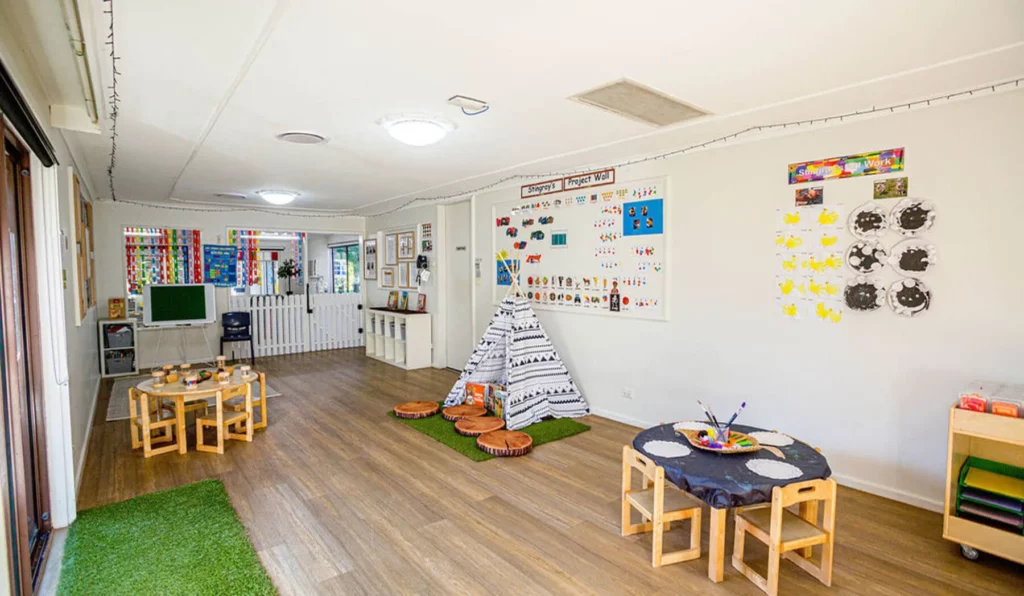In the picturesque Hills District of New South Wales, parents often find themselves navigating the complexities of early childhood development. One of the critical areas of focus is speech and language development, which can significantly impact a child’s social, emotional, and academic journey. Early intervention through speech therapy can provide invaluable support for toddlers experiencing speech delays or difficulties. This article delves into the importance of speech therapy for toddlers, the signs of speech delays, and the resources available in the Hills District.
The Importance of Early Intervention
Early intervention in speech therapy for toddlers is crucial, as it lays the foundation for effective communication skills. Research indicates that the earlier a child receives support, the better their long-term outcomes. Speech therapy can help address various speech and language disorders, ensuring that children develop the necessary skills to express themselves and interact with others.
In the Hills District, many families are recognising the significance of early support. Speech therapy not only aids in overcoming communication barriers but also enhances a child’s confidence and social skills. By fostering these abilities at a young age, children are better prepared for their educational journey and social interactions.
Benefits of Early Speech Therapy
Engaging in speech therapy at an early age offers numerous benefits, including:
- Improved Communication Skills: Therapy helps children articulate sounds and words correctly, enhancing their ability to communicate effectively.
- Boosted Confidence: As children learn to express themselves, their self-esteem grows, making them more willing to engage with peers.
- Enhanced Social Interactions: Effective communication is vital for forming friendships and participating in group activities, which are essential for social development.
- Better Academic Performance: Strong language skills are linked to improved literacy and overall academic success.
Identifying Speech Delays
Recognising the signs of speech delays in toddlers is essential for timely intervention. Parents and caregivers should be aware of typical speech development milestones and the indicators that may suggest a need for professional support.
By the age of two, most children should be able to use simple phrases and have a vocabulary of around 50 words. If a child is not meeting these milestones, it may be time to consult a speech therapist. Common signs of speech delays include:
Common Signs of Speech Delays
- Limited Vocabulary: Fewer than 50 words by age two.
- Difficulty Pronouncing Words: Frequent mispronunciation that affects understanding.
- Challenges in Following Directions: Difficulty understanding or responding to simple instructions.
- Limited Use of Gestures: Rarely pointing or using other gestures to communicate.
Finding Speech Therapy Services in the Hills District
For parents seeking speech therapy for their toddlers in the Hills District, there are various resources available. Local clinics, private practitioners, and community health services offer tailored speech therapy programmes designed to meet the needs of young children.
When searching for a speech therapist, consider the following factors:
Choosing the Right Speech Therapist
- Qualifications: Ensure the therapist is a certified speech pathologist with experience in paediatric care.
- Specialisation: Look for therapists who specialise in early childhood speech and language development.
- Approach: Inquire about their therapeutic approach and whether it aligns with your child’s needs.
- Location: Consider the convenience of the clinic’s location and its accessibility for regular visits.
Types of Speech Therapy Approaches
Speech therapy can encompass a variety of approaches tailored to the individual needs of each child. Understanding these methods can help parents make informed decisions about their child’s therapy.
Some common approaches include:
Play-Based Therapy
Play-based therapy is a popular method for toddlers, as it incorporates play into the learning process. This approach helps children feel comfortable and engaged while working on their speech and language skills. Therapists use toys, games, and interactive activities to encourage communication and social interaction.
Parent-Child Interaction Therapy
This approach focuses on enhancing the parent-child relationship to improve communication. Therapists guide parents on how to engage their children effectively, using strategies that promote language development during everyday activities. This method empowers parents to become active participants in their child’s speech therapy journey.
Individualised Therapy Plans
Every child is unique, and an individualised therapy plan ensures that the specific needs of each toddler are addressed. Therapists assess the child’s strengths and weaknesses, creating a customised plan that targets their particular challenges while building on their existing skills.

Supporting Your Child at Home
While professional speech therapy is invaluable, parents can also play a significant role in supporting their child’s speech and language development at home. Simple strategies can make a substantial difference in reinforcing what is learned during therapy sessions.
Encouraging Communication
Encouraging your child to communicate can be as simple as engaging them in conversation, asking open-ended questions, and providing ample opportunities for them to express themselves. Reading together, singing songs, and playing interactive games can also stimulate language development.
Creating a Language-Rich Environment
Surrounding your child with a language-rich environment is essential. This can involve narrating daily activities, describing objects, and using varied vocabulary to expose your child to new words and concepts. The more language they hear, the more they will learn to use it themselves.
Conclusion
Speech therapy for toddlers in the Hills District is a vital resource for families seeking to support their children’s communication development. Early intervention can lead to significant improvements in speech and language skills, ultimately enhancing a child’s confidence and social interactions. By recognising the signs of speech delays and seeking professional help, parents can ensure their toddlers receive the support they need to thrive.

With a variety of services available in the Hills District, families can find the right speech therapy options tailored to their child’s unique needs. By actively participating in their child’s therapy and fostering a supportive home environment, parents can play a crucial role in their child’s speech and language journey.
Click here for more related articles







